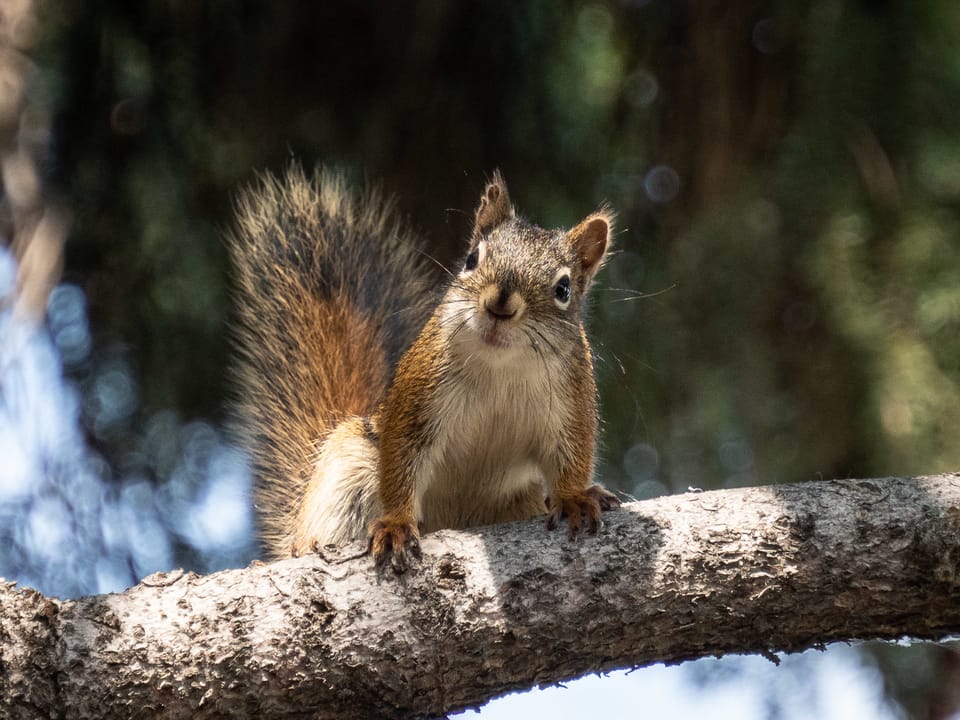EcoWest News, August 22, 2023

Welcome to EcoWest News, a weekly round-up of news and resources that you can put to use in addressing environmental issues and protecting the wild in your community.
A Rooted Life
“To belong is to be long … To tarry, to dwell, to stay put … to act as though you always have been, and always will be, a part of where you are, while still honouring the rights of those who came first. To be long is to understand that your well-being always has been, always will be, tied to the ecosystems and the people that surround you. To be long is to know the plants and the poets and the Elders of your watershed as well as, if not better, than those from away. To be long is to know in your bones there is no escape. To be long is to do everything you can today, so that long after you are gone, your daughter and her daughter’s daughters will be able to walk through Botany Pond just as the chocolate lilies bloom and the red-naped sapsuckers glean from the living heart of birch. To be long – it may be hard, it may take all I have, but it may be the only story that will save us, people and plants, together in place.” [Drawing Botany Home: A Rooted Life, Lyn Baldwin]
Across the West
A resource company hopes to start an open-pit magnesium mine near Rossland, BC. Community members are worried about the destruction of critical habitat, truck traffic, and the mine’s impact on tourism and recreation. [The Narwhal]
Wildlife Haven Rehabilitation Centre and the Assiniboine Park Conservancy are working together to make rehabilitative care more accessible and to spread awareness and take action on wildlife conservation. [CTV News Winnipeg]
Around the World
Wild bees are in many cases essential to flourishing ecosystems and farms, even where honeybees are abundant. They may be more effective pollinators or increase the rate at which flowers turn to fruit. [Knowable]
Maps can be useful tools in identifying where wildlife and people can coexist from the perspective of both humans and wildlife as well as in mapping changes over time. [Futurity]
Employing recycled plastic in construction materials sounds like a good idea, but there are concerns about its structural stability and its impact on the environment and public health. Limiting plastic production is the better option. [Mother Jones]
Art & Science
Precipice: Changing the Course of the Extinction Crisis in BC, an art exhibition telling stories of biodiversity loss and hope in British Columbia, will be on display in Vancouver from Sept. 14-25. [CPAWS BC]
“Together, art and science communicate in ways neither can achieve alone, and integrating art and science in research, engagement, and education efforts can expand the impact of any program or project.” [Eos]
Scientists on the art that has inspired them. Artists on the science that has inspired them. [Nautilus]
Nature’s Wonders
Squirrels can’t sweat. If they get too hot, they sprawl (or sploot) trying to transfer the heat away from their bodies. [NPR]
An Act of Love
In the introduction to A Wild Promise by Allen Crawford, Terry Tempest Williams encourages us to follow the author’s example and “to seek out an endangered or threatened species that lives close to you, learn their natural history and give them not only your attention, but your devotion.” Williams refers to the Endangered Species Act as an “act of love that asks for our engagement, each in our own way with the gifts that are ours in the places we call home. Learn their names. Speak their names. Remember their names. Act.” [The Revelator]
Photo credit: https://www.flickr.com/photos/apmckinlay/50171956647
EcoFriendly West informs and encourages initiatives that support Western Canada’s natural environment through its online publication and the Nature Companion website/app. Like us on Facebook, follow us on Twitter or Mastodon, or subscribe by email.

Member discussion